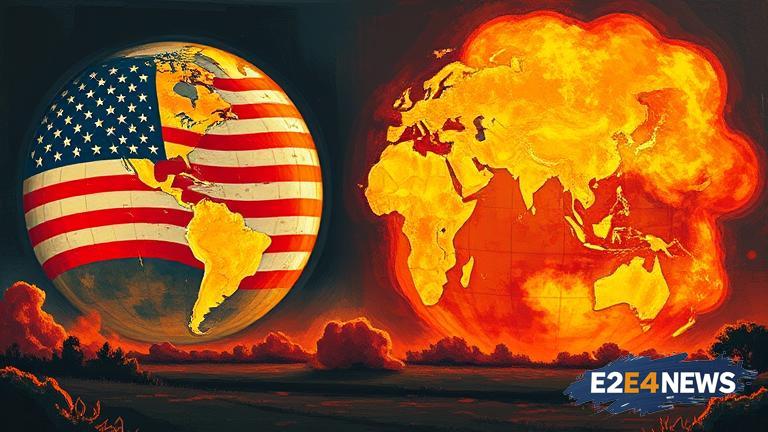The age of American nuclear privilege is over, as the global nuclear landscape undergoes a significant transformation. For decades, the United States has maintained a position of nuclear superiority, with its arsenal and technological advancements serving as a deterrent to other nations. However, this era of dominance is coming to an end, as other countries, particularly China and Russia, continue to develop and modernize their nuclear capabilities. The rise of these nations has led to a shift in the global balance of power, with the United States no longer holding a monopoly on nuclear power. This change is driven by advancements in technology, increased investment in nuclear programs, and a growing desire for global influence. As a result, the United States is facing increased competition and challenges to its nuclear superiority. The implications of this shift are far-reaching, with potential consequences for global security, international relations, and the future of nuclear deterrence. The end of American nuclear privilege also raises questions about the effectiveness of the current nuclear non-proliferation regime and the need for new strategies to address the changing global nuclear landscape. Furthermore, the growing nuclear capabilities of other nations have led to concerns about the potential for nuclear conflict and the need for increased diplomacy and cooperation to prevent such an outcome. The United States must adapt to this new reality and develop new strategies to maintain its national security and promote global stability. This will require a combination of diplomatic efforts, investments in new technologies, and a willingness to engage with other nations to address common security challenges. The shift in global nuclear dynamics also has significant implications for international relations, as nations seek to navigate the new landscape and protect their interests. The rise of new nuclear powers has led to a more complex and multipolar world, with increased competition and cooperation between nations. In this new era, the United States must be prepared to work with other nations to address common challenges and promote global security. The end of American nuclear privilege is a significant development that will have far-reaching consequences for global security, international relations, and the future of nuclear deterrence. As the global nuclear landscape continues to evolve, it is essential for nations to work together to promote stability and prevent the proliferation of nuclear weapons. The United States, China, and Russia must engage in diplomatic efforts to address common security challenges and promote a new era of cooperation and stability. The future of global security depends on the ability of nations to adapt to the changing nuclear landscape and work together to prevent the threats posed by nuclear weapons.
Wed. Oct 29th, 2025
